Climate Justice as a Human Rights Issue: Legal & Philosophical Perspectives
Climate Justice as a Human Rights Issue is not just about rising temperatures, melting ice caps, or extreme weather. At its core, it is about people—their dignity, their rights, and their ability to live free from harm. This is why climate justice and human rights are deeply connected, demanding both legal accountability and philosophical reflection.
The Legal Dimension of Climate Justice as a Human Rights Issue
International human rights law provides a powerful framework for addressing climate change. It makes clear that the climate crisis is also a human rights crisis.
The Right to Life and Health
Climate-related disasters, heatwaves, and the spread of diseases directly threaten the right to life (Article 6, ICCPR) and the right to health (Article 12, ICESCR).
The Right to Food, Water, and Housing
Droughts, flooding, and rising sea levels undermine access to food, clean water, and adequate housing—rights enshrined in multiple international treaties.
Intergenerational Rights
New frameworks, such as the Maastricht Principles on the Human Rights of Future Generations, stress that states and corporations owe duties not only to present populations but also to future generations.
Accountability and Ecocide
Legal debates on recognizing ecocide as an international crime highlight the urgent need to hold powerful actors accountable for large-scale environmental destruction.
Across courts worldwide—from the Urgenda case in the Netherlands to the Human Rights Committee’s Teitiota decision on climate displacement—human rights arguments are shaping climate litigation and policy.
The Philosophical Perspective on Climate Justice and Human Rights
Law alone cannot capture the full depth of climate justice as a human rights issue. Philosophy helps us explore deeper ethical questions:
Whose Rights Matter Most?
Climate impacts are uneven. Marginalized communities, Indigenous peoples, and women often bear the heaviest burdens, raising urgent questions of distributive and intersectional justice.
What Do We Owe to Future Generations?
Climate change forces us to expand the moral community beyond the present. Justice must be intergenerational, recognizing that today’s choices shape tomorrow’s freedoms.
What About the Rights of Nature?
Philosophical debates about granting rights to rivers, forests, and ecosystems challenge traditional human-centered legal frameworks and open pathways for holistic environmental protection.
By integrating legal obligations with philosophical principles, climate justice becomes more than a policy agenda—it becomes an ethical imperative.
Towards a Just Climate Future
At ZA Global Academic Consultancy, we work at this intersection of law, philosophy, and human rights education. From training judges to designing university curricula and advising on international research projects, our aim is to equip institutions and communities with the tools to make climate justice real.
Climate justice as a human rights issue is not a niche concern. It is the lens through which climate action can respect human dignity, protect future generations, and build a more sustainable and equitable world.
Further Resources on Climate Justice and Human Rights
- OHCHR – Climate Change and Human Rights
- UN Human Rights Council Resolution 48/13 – Recognizing the Right to a Healthy Environment
- Urgenda Climate Case Summary
- Stop Ecocide International
- Global Campus of Human Rights – Climate Justice Education
✨ Climate Justice as a Human Rights Issue is both a legal obligation and a philosophical challenge. Legally, it demands accountability. Philosophically, it compels us to rethink justice across time, space, and species. Together, these perspectives remind us that climate change is not only an environmental crisis—it is a moral and human challenge.
